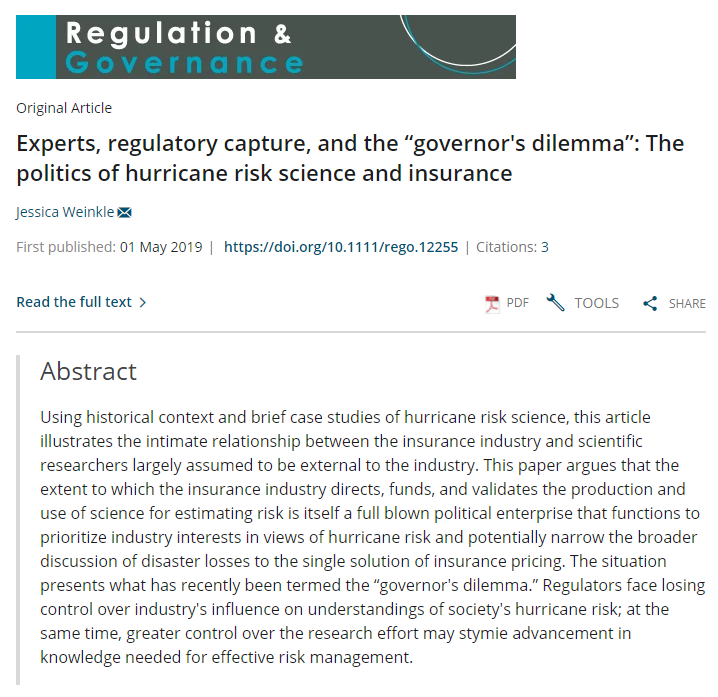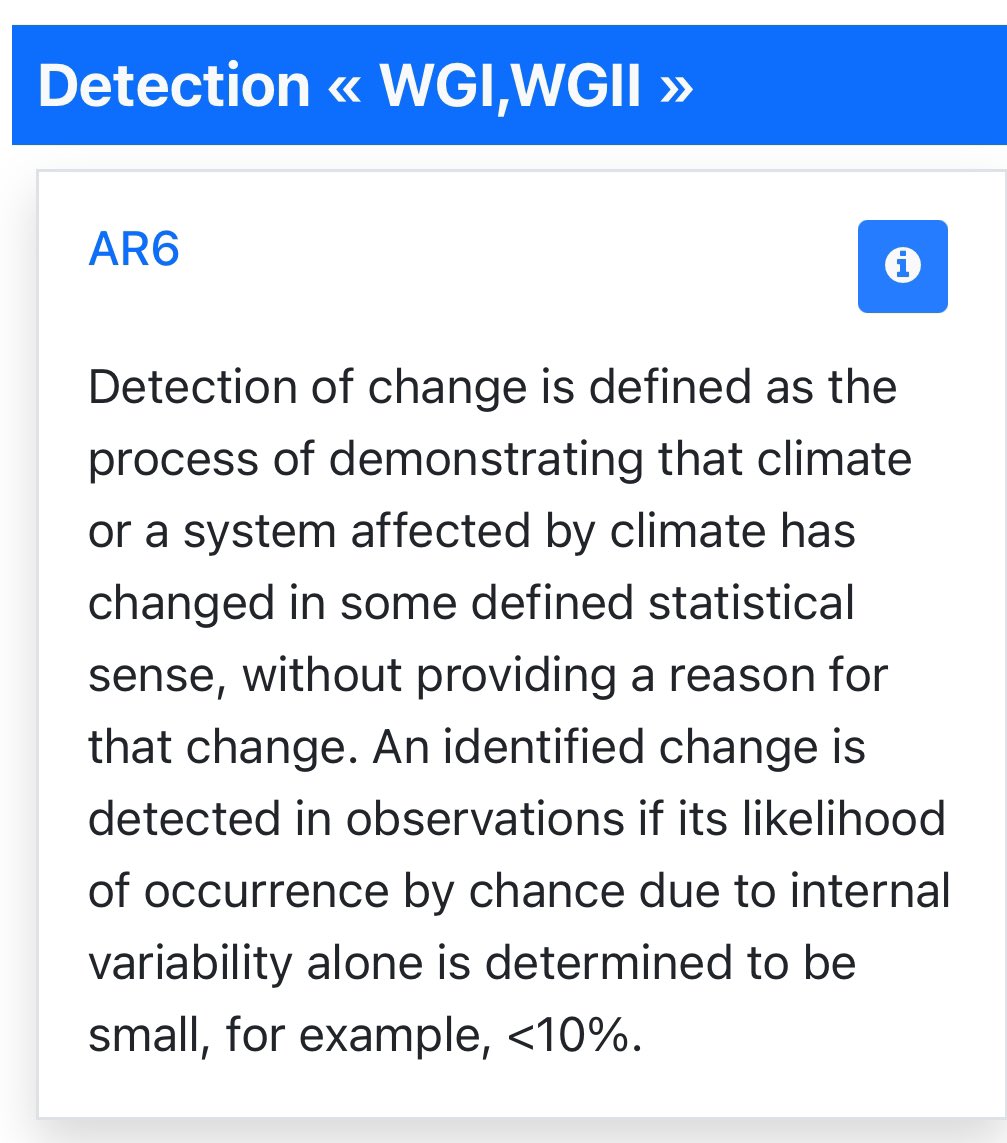A great paper by @JessicaWeinkle
onlinelibrary.wiley.com/doi/abs/10.111…
"the extent to which the insurance industry directs, funds & validates the production & use of science for estimating risk is itself a full blown political enterprise that functions to prioritize industry interests"
onlinelibrary.wiley.com/doi/abs/10.111…
"the extent to which the insurance industry directs, funds & validates the production & use of science for estimating risk is itself a full blown political enterprise that functions to prioritize industry interests"

Weinkle documents the co-optation of scientists by the insurance industry to create regulatory-friendly research that appears to be "independent" 

The use of the resulting research by industry goes unchallenged and in fact, legitimizes the work of the (no so) "independent" experts as authoritative because industry is using it ... so a mutually reinforcing legitimization circle 

And Weinkle is not just talking about a one-off collaboration here and there
Insurance industry-academic ties are deep and pervasive
Insurance industry-academic ties are deep and pervasive

Bottom line is that insurance-academic connections warrant scrutiny (just like any industry-academic connections) 

• • •
Missing some Tweet in this thread? You can try to
force a refresh
















